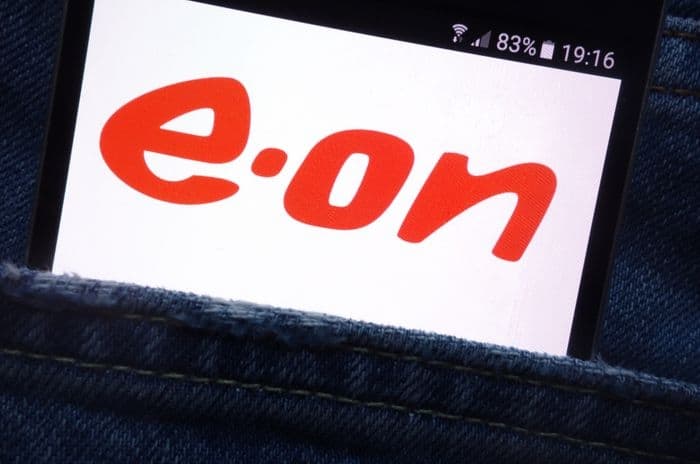Home > Energy > News > E.On hand death sentence to standard energy tariffs
E.On hand death sentence to standard energy tariffs
EON have announced they're to begin phasing out standard variable tariffs (SVTs), which will be replaced by a one-year default fixed tariff.

From "early 2018" the energy provider will begin phasing out SVTs, which are normally the tariff onto which customers are moved by default whenever a fixed or special tariff they're on comes to the end of its term.
Instead, customers with a smart meter will be automatically rolled onto a tariff which will have its price fixed for one year, thereby protecting them from any nasty bill hikes over the course of its 12 months.
However, as much as this would appear to offer a significant improvement over SVTs, it will initially be available only to customers with a smart meter, while consumer groups have warned that any lack of pricing transparency would make it more or less as bad as what it will replace.
History lesson
Fixed tariffs: are they good?
Finding the ideal tariff for you
How to make a complaint to your supplier
Standard variable tariffs have come in for an enormous amount of flack over the past year or so, and in light of E.On's announcement, it would seem that the writing had been on the wall for them for quite some time.
In February of this year, Ofgem blamed providers for introducing SVT rises that weren't justified in light of relatively low wholesale fuel prices, after npower and every major supplier bar British Gas announced above-inflation increases.
This criticism reached its apex when, in the following months, the Conservative Government hinted at a price cap for SVTs, before officially proposing such a measure in their General Election manifesto.
Yet the promise of a cap was broken when the election result didn't quite turn out as hoped for by the Government, who instead made some vague commitments to tackling high energy prices in the Queen's Speech.
Of course, pressure for action continued, especially after British Gas fell in line with the rest of the Big Six in August, with Citizens Advice calling for a "safeguard" SVT to be introduced for vulnerable customers.
Fixed and flexible
And this is precisely where E.On enter. Fresh from their announcement of a new 100% Clean Energy tariff, they've now announced that their SVT will be completely abolished from next year.
Instead of being put on an SVT whenever a cheaper fixed tariff comes to an end, customers will be put onto a default fixed-term tariff, which for one year will protect them from price rises.
Speaking of how this new system will benefit customers, E.On UK's Chief Executive, Michael Lewis, said, "We believe standard variable tariffs have had their day. Tomorrow is about helping customers engage with the market with tariffs that work for them".
The ability to engage with the market will come from the fact that, unlike most normal fixed-term tariffs, customers will have the flexibility to switch from their default fixed tariff and go to another provider, and all without incurring the usual exit fee.
Reservations
That said, not everyone is unreservedly enthusiastic about E.On's plan to kill off SVTs and replace them with a fixed substitute.
Citizens Advice, for one, worry that the new tariff will come with many of the same problems as the old SVT.
Their Chief Executive, Gillian Guy, said, "E.ON needs to be absolutely transparent about the costs of any rolling fixed deal, and also be clear with customers about what happens when the fixed period ends".
Given that the latest Ofgem survey on the subject found that only 33% of customers bothered comparing competing tariffs in 2017, their concerns are understandable, suggesting that customers may without realising be moved onto tariffs that, while fixed for one year, are still considerably more expensive on average than others.
Added to this, another issue with E.On's new default fixed tariff is that it's available only to the million customers of theirs who have smart meters. Although such meters are free to install, this is a potential problem largely because, at the moment, they work as smart meters only with the energy provider who fitted them, thereby providing customers with an odd reason for not switching to a cheaper supplier.
Goodbye SVTs
Nonetheless, E.On's Lewis assures customers that they'll "also be working on options for classic meter customers joining us or coming to the end of fixed term tariffs".
And combined with the fact that the upcoming fixed tariff will offer a bit more security than SVTs, it suggests that E.On's move will be a positive one on the whole.
This is especially so insofar as it will no doubt goad the rest of the Big Six into eliminating SVTs themselves, for fear of being outcompeted.
Receive consumer updates that matter in our newsletter

We are independent of all of the products and services we compare.

We order our comparison tables by price or feature and never by referral revenue.

We donate at least 5% of our profits to charity, and we aim to be climate positive.
Latest News

2 January 2024
Energy prices increase by 5%
23 November 2023
Energy price cap to rise 5% in January 2024
24 October 2023
Energy companies must do more to support customers

